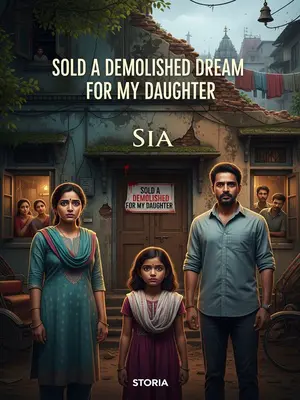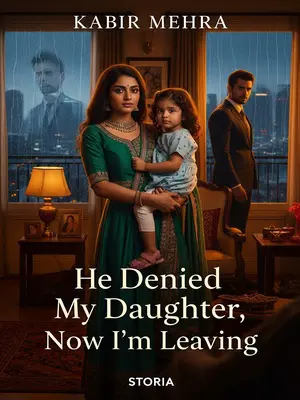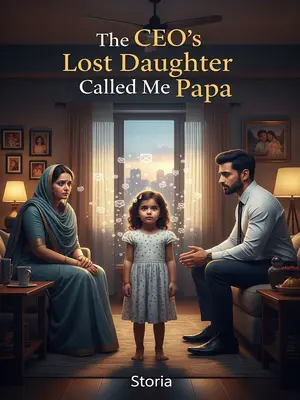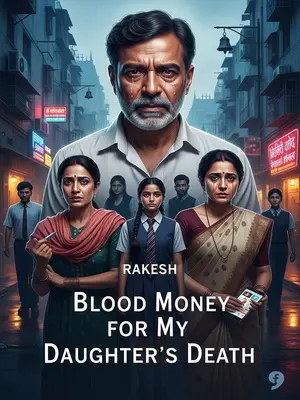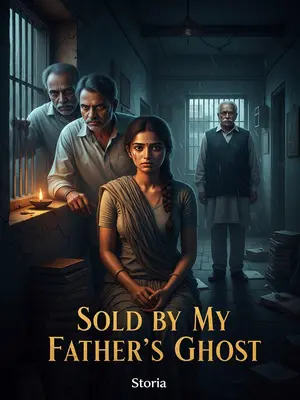Chapter 1: Bleeding the Company
They thought they could bleed me dry. Today, I bled the company instead.
The pedestal fan creaked as it turned, stirring up the smell of stale samosas and printer ink. My fingers trembled as I stared at the computer screen, sweat prickling beneath my shirt. Downstairs, a chaiwala’s call floated through the dusty grills, promising a break that would never come. I pressed 'send' with a breath that felt both heavy and final.
Yes, I did it on purpose.
I wanted those big shots to learn: shove me to the brink, and I’ll drag your whole rotten empire down. My life might be worthless to them, but today, I’d use it to ruin theirs.
The words sat bitter as neem on my tongue, but the rage inside me was almost soothing. My life had become a cruel joke. If I was just a pawn, then let me topple the king. That’s all a powerless man can do in this city—where even the auto drivers sneer if your shirt’s not ironed.
Ever since my family’s troubles began, I never begged the company for help. Instead, they squeezed me dry. The boss worked me to the bone, never paid a rupee extra, and sometimes cut my salary for no reason at all.
I remembered Amma’s hands, rough from years of scrubbing floors, folding over mine when the electricity bill came. “Beta, never beg. No one gives you anything for free.” She was right. The company only gave me stress, stacks of unpaid bills, and bags under my eyes so deep that neighbours wondered if I’d started night duty as a watchman.
Whenever I tried to reason with him, the boss would just shrug, “Market is down, yaar. We all need to help the company survive.”
He’d waggle that Montblanc pen—gifted by some neta, probably—like he was signing my life away, not just my payslip. The others would just nod or stare at their desks, pretending to be busy, as the usual office drama played out.
But I was already being crushed by life, barely able to breathe.
Some nights, I’d stand at the window of my one-room flat, watching distant city lights and wondering if anyone was listening. Amma’s voice in the kitchen, the whistle of the Hawkins cooker, the hum of TV serials—it all felt like I was just a spectator in my own life.
One day, I demanded my overtime pay and told him straight: if he didn’t pay, I’d complain to the labour office.
The admin aunty’s chai cup paused halfway to her lips. Even the peons stopped pretending to shuffle files. In this place, raising your voice was like lighting a match near a petrol pump.
The boss just spread his hands, completely unfazed. “Haan haan, jao complain karo. I’m squeezing you, toh kya? You think I can’t hold back your salary for six months? Worst case, I pay a fine. But you—without salary, kaise chalega?”
He leaned back in his imported chair, grinning like the whole world owed him. That typical Delhi arrogance—sab kuch apne baap ka samajhte hain, you know?
In that moment, my heart turned cold.
The air seemed to freeze, the fan’s whir became deafening. I saw my future: endless nights staring at the ceiling, Amma’s cough in the next room, hunger twisting my insides.
He knew my family was struggling, knew I couldn’t quit, and used it to bully me—deliberately.
It’s always the same, isn’t it? The powerful smell your fear like stray dogs sniffing biryani. Once they know you’re trapped, they press harder, like someone grinding masala.
A regular person would have no choice but to swallow it.
I remembered my father’s words—“Sometimes, you have to bend like bamboo, beta, otherwise you’ll break.” But that day, I realised, even bamboo cracks if you press too hard.
But not me.
Because I’d studied the law.
In the quiet hours of the night, I read legal articles online, watched YouTube videos with those fast-talking advocates promising to get your PF in 30 days. Knowledge is the only weapon the poor have, after all.
As a member of the working class, if I’m willing to pay the price for breaking the law, the boss is nothing before me.
What’s the worst that could happen? Lose my job? Get blacklisted? I was already living on the edge. When you’ve got nothing left, your courage multiplies like cockroaches after the rains.
When the cost of crime is so much less than the reward, plenty of people will choose to break the law.
It’s the simple maths of our society. Ask any auto driver—“Jitna risk, utna reward.” The system runs on who can bend the rules without getting caught.
And my goal was clear.
Revenge wasn’t some filmy dialogue for me—it was survival. The next step was just a matter of timing.
Every day alive is suffering anyway. If you push me too far, I’ll use my miserable life to destroy this heartless boss.
Sometimes, suffering makes you reckless. I’d seen enough of it in the lines on Amma’s face, in my own reflection as I brushed my teeth with cheap paste. I’d become the person I used to pity in government hospitals.
To put it simply: even if I spat in the face of a major client, at worst I’d lose my job, but the company would lose a fortune.
I could almost hear my old college friend’s voice, half-joking—"Arrey, tu toh saala dangerous nikla!" Maybe this was the only way left to even the score.
Back at my desk in our LIC office, I was plotting how to get revenge when my phone buzzed.
The ancient AC groaned overhead. I glanced at the clock—6:37pm, everyone waiting for the boss’s mood to improve so we could go home. My phone vibrated again, the green WhatsApp icon lighting up the cracked screen.
A WhatsApp message—short and simple.
“I changed my bank account, please transfer the money to this account, details as follows...”
I stared at the message, hesitating.
The sender’s display picture was generic, but the way the message was worded—it screamed scam to anyone who’d ever seen those government cyber safety ads on Doordarshan. My fingers hovered over the keypad, heartbeat steady now, like I’d already crossed some invisible line.
Of course I knew it was a scam. And I just happened to be the company’s accountant.
There was something poetic about it. The universe had handed me a weapon wrapped in digital wool. For the first time in months, I felt a twisted sense of power.
At any moment, I could stab the boss right in the back.
The thought made me smile, just a little. Wasn’t that the dream of every overworked, underpaid office worker in India?
This was my chance.
Fate rarely offers you such a perfect opportunity. I looked at my reflection in the dusty glass panel behind my computer, and I could barely recognise the man staring back. My hand hovered over the mouse, that delicious anticipation running through my veins.
If I transferred the company’s money to the scammer, the boss would be finished.
The stakes were huge. The type of thing that would make headlines on Aaj Tak, with those flashing red tickers—"Company ka accountant ne boss ko lagayi chori ka chakkar!"
But I hesitated—was this wretched boss really worth it?
Suddenly, my thoughts went to Amma’s worried face, my brother’s torn shoes, the old fan that groaned at night like it was praying for mercy. Was it fair to throw away my life for the sake of this kameena boss?
Was I a criminal now? Or just another desperate man in a city that chews up the poor and spits them out? Amma always said, “Beta, seedha rasta chalo.” But what if the straight road only led to hunger?

